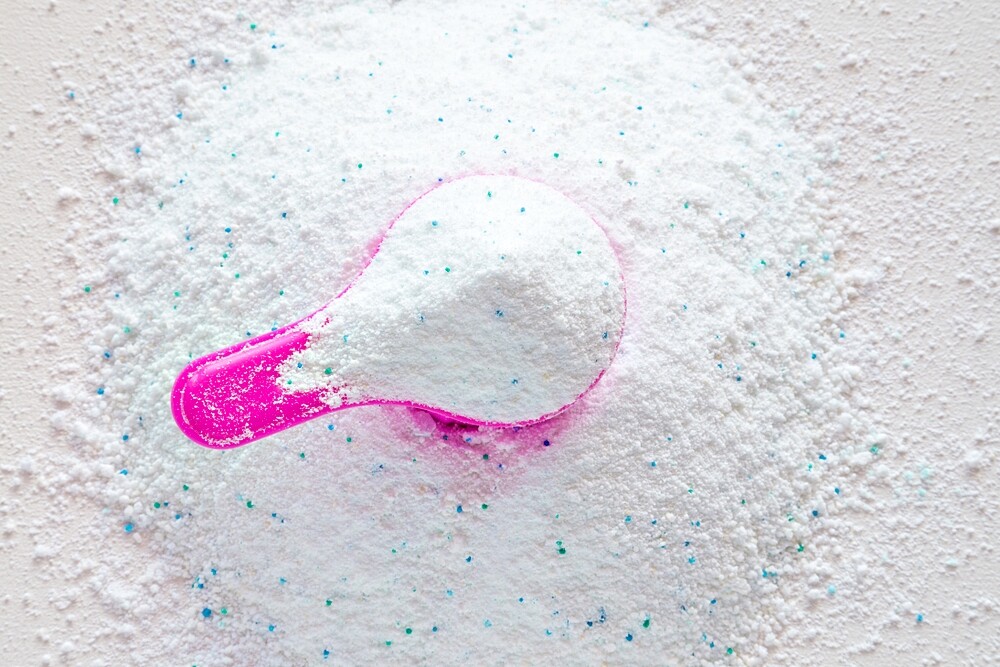A detergent allergy can cause various complaints. Here you can find out all about the possible symptoms, causes and treatment options!
What is a detergent allergy?
A detergent allergy is a so-called contact allergy, which can lead to various symptoms such as itching or skin irritation all over the body. Different substances in the detergent can be considered as a triggering allergen. Various medications can help to alleviate the symptoms, and those affected should also only use detergents that are suitable for allergy sufferers.
The allergen in washing machines: Where does my allergic reaction come from?
Many different chemical compositions of different substances in varying concentrations are found in cleaning agents and detergents, which can trigger allergic reactions. Among the most common known allergens are:
- Enzymes: These substances ensure greater washing power at low temperatures, for example for gentle washing at 30 to 40 degrees.
- Surfactants: The task of the surfactants in the detergent is to dissolve fat. However, residues of the fabric can stick to clothing and destroy the acid mantle of the skin on direct contact. Dry skin is often the result – people with pre-existing skin diseases such as neurodermatitis or psoriasis are also at high risk of allergies.
- Perfumes and fragrances: They ensure that clothes have a pleasant smell after washing – but many people react sensitively to them. To avoid allergy symptoms, fragrances should be avoided completely. This applies not only to detergents, but also to care products such as creams or cosmetics.
Other so-called allergenic contact substances are plasticizers, optical brighteners, phosphates, soap ingredients, rosin and dyes.
What are the symptoms of a detergent allergy?
The detergent allergy is a type IV contact allergy, which means that the allergic reactions occur with a time delay – in the case of detergents, usually after about 12 hours. Therefore, in many cases the symptoms are not initially attributed to a detergent allergy. Allergy sufferers can suffer from the following symptoms, some of which are similar to those of a cold:
- Itching
- Whole body rash
- Dry, inflamed skin areas
- Watery eyes up to conjunctivitis
- Burning or stabbing pain at the contact point
- Mucosal swelling
- Respiratory distress (in severe cases)
At the beginning of the allergy, the symptoms are usually only mildly pronounced. However, if there is repeated contact with the respective allergen, they can intensify and in the worst case lead to a life-threatening anaphylactic shock. For this reason, the allergy trigger should be sought by means of a prick test at the first suspicion. In case of severe skin reactions, the triggering substance can usually also be determined by a so-called epicutaneous test.
Treatment: What helps against allergies?
If symptoms already exist, drugs such as antihistamines or ointments containing cortisone can help. Allergy sufferers should avoid washing powder that might contain the triggering allergen. There are special detergents for allergy sufferers. Even with fabric softeners, you should pay close attention to the ingredients and, if necessary, avoid them.
Many of those affected also swear by the soap nut: for clean laundry, five to eight half shells of soap nuts are placed in a sealable cotton bag and placed directly in the washing drum.

